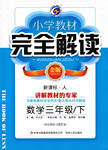When I was fourteen, I earned money in the summer by cutting lawns (草坪), and within a few weeks I had built up a body of customers. I got to know people by the flowers they planted that I had to remember not to cut down, by the things they lost in the grass or stuck in the ground on purpose. I reached the point with most of them when I knew in advance what complaint was about to be spoken, which particular request was most important. And I learned something about the measure of my neighbors by their preferred method of payment: by the job, by the month—or not at all.
Mr. Ballou fell into the last category, and he always had a reason why. On one day, he had no change for a fifty, on another he was flat out of checks, and on another, he was simply out when I knocked on his door. Still, except for the money, he was a nice enough guy, always waving or tipping his hat when he’d seen me from a distance. I figured it was a thin retirement check, or maybe a work-related injury that kept him from doing his own yard work. Surely, I kept record of the total, but I didn’t worry about the amount too much. Grass was grass, and Mr. Ballou’s property didn’t take long to trim (修剪).
Then, one late afternoon in mid-July, the hottest time of the year, I was walking by his house and he opened the door, mentioned me to come inside. The hall was cool, shaded, and it took my eyes a minute to adjust to the dim light.
“I owe you,” Mr. Ballou, “but…”
I thought I’d save him the trouble of thinking of a new excuse. “No problem. Don’t worry about it.”
“The bank made a mistake in my account,” he continued, ignoring my words. “It will be cleared up in a day or two. But in the meantime I thought perhaps you could choose one or two volumes for a down payment (首期付款).
He gestured toward the walls and I saw that books were stacked (堆放) everywhere. It was like a library, except with no order to the arrangement.
“Take your time,” Mr. Ballou encouraged. “Read, borrow, keep. Find something you like. What do you read?”
“I don’t know.” And I didn’t. I generally read what was in front of me, what I could get from the paperback stacked at the drugstore, what I found at the library, magazines, the back of cereal boxes, comics. The idea of consciously seeking out a special title was new to me, but, I realized, not without appeal-- so I started to look through the piles of books.
“You actually read all of these?”
“This isn’t much,” Mr. Ballou said. “This is nothing, just what I’ve kept, the ones worth looking at a second time.”
“Pick for me, then.”
He raised his eyebrows, cocked his head, and regarded me as though measuring me for a suit. After a moment, he nodded, searched through a stack, and handed me a dark red hardbound (精装本) book, fairly thick.
“The Last of the Just,” I read. “By Andre Schwarz-Bart. What’s it about?”
“You tell me,” he said. “Next week.”
I started after supper, sitting outdoors on an uncomfortable kitchen chair. Within a few pages, the yard, the summer, disappeared, and I was thrown into the aching tragedy of the Holocaust, the extraordinary clash of good, represented by one decent man, and evil. Translated from French, the language was elegant, simple, impossible to resist. When the evening light finally failed I moved inside, reading all through the night.
To this day, thirty years later, I vividly remember the experience. It was my first voluntary encounter (接触、遇到) with world literature, and I was stunned (震惊) by the concentrated power a novel could contain. I lacked the vocabulary, however, to translate my feelings into words. So the next week when Mr. Ballou asked, “Well?” I only replied, “It was good.”
“Keep it, then,” he said. “Shall I suggest another?”
I nodded, and was presented with the paperback (平装本) edition of Margaret Mead’s Coming of Age in Samoa ( a very important book on the study of the social and cultural development of peoples-- anthropology (人类学)).
To make two long stories short, Mr. Ballou never paid me a cent for cutting his grass that year or the next, but for fifteen years I taught anthropology at Dartmouth College. Summer reading was not the innocent entertainment I had assumed it to be, not a light-hearted, instantly forgettable escape in a hammock (吊床) (though I have since enjoyed many of those, too). A book, if it arrives before you at the right moment, in the proper season, at an internal in the daily business of things, will change the course of all that follows.
小题1:The author found the first book Mr. Ballou gave him _________.
| A.light-hearted and enjoyable |
| B.dull but well written |
| C.impossible to put down |
| D.difficult to understand |
小题2:From what he said to the author, we can infer that Mr. Ballou _________.
| A.read all books twice |
| B.did not do much reading |
| C.read more books than he kept |
| D.preferred to read hardbound books |
小题3:The following year the author _________.
| A.started studying anthropology at college |
| B.continued to cut Mr. Ballou’s lawn |
| C.spent most of his time lazing away in a hammock |
| D.had forgotten what he had read the summer before |
小题4:The author’s main point is that _________.
| A.summer jobs are really good for young people |
| B.you should insist on being paid before you do a job |
| C.a good book can change the direction of your life |
| D.a book is like a garden carried in the pocket |



 点睛新教材全能解读系列答案
点睛新教材全能解读系列答案 小学教材完全解读系列答案
小学教材完全解读系列答案